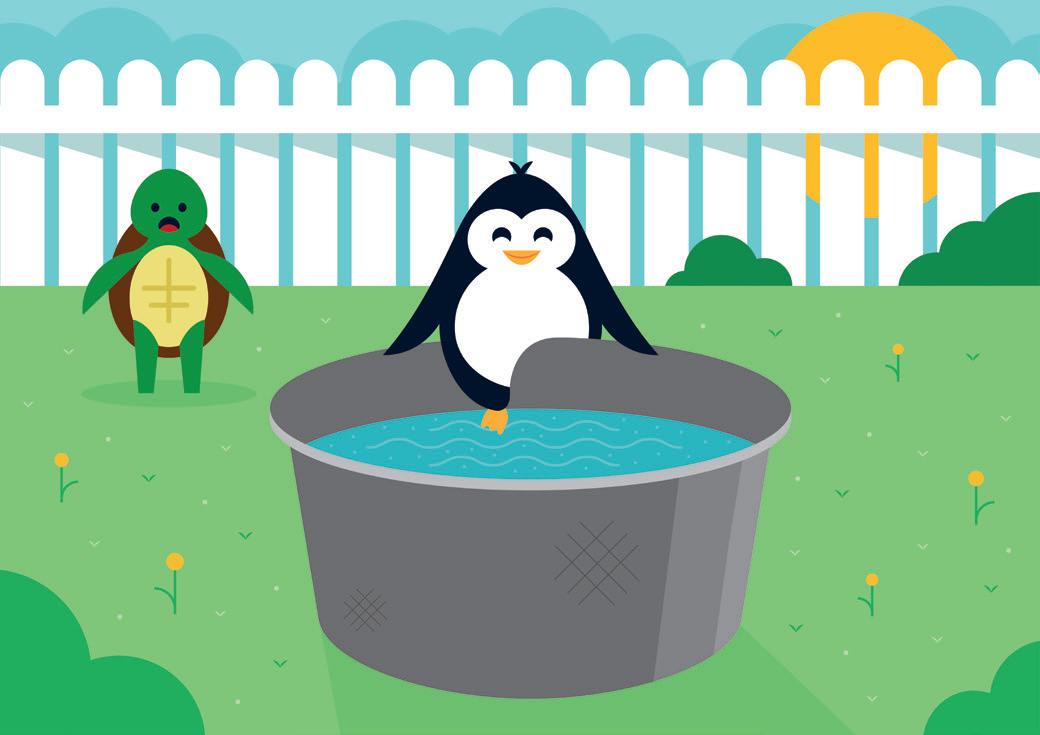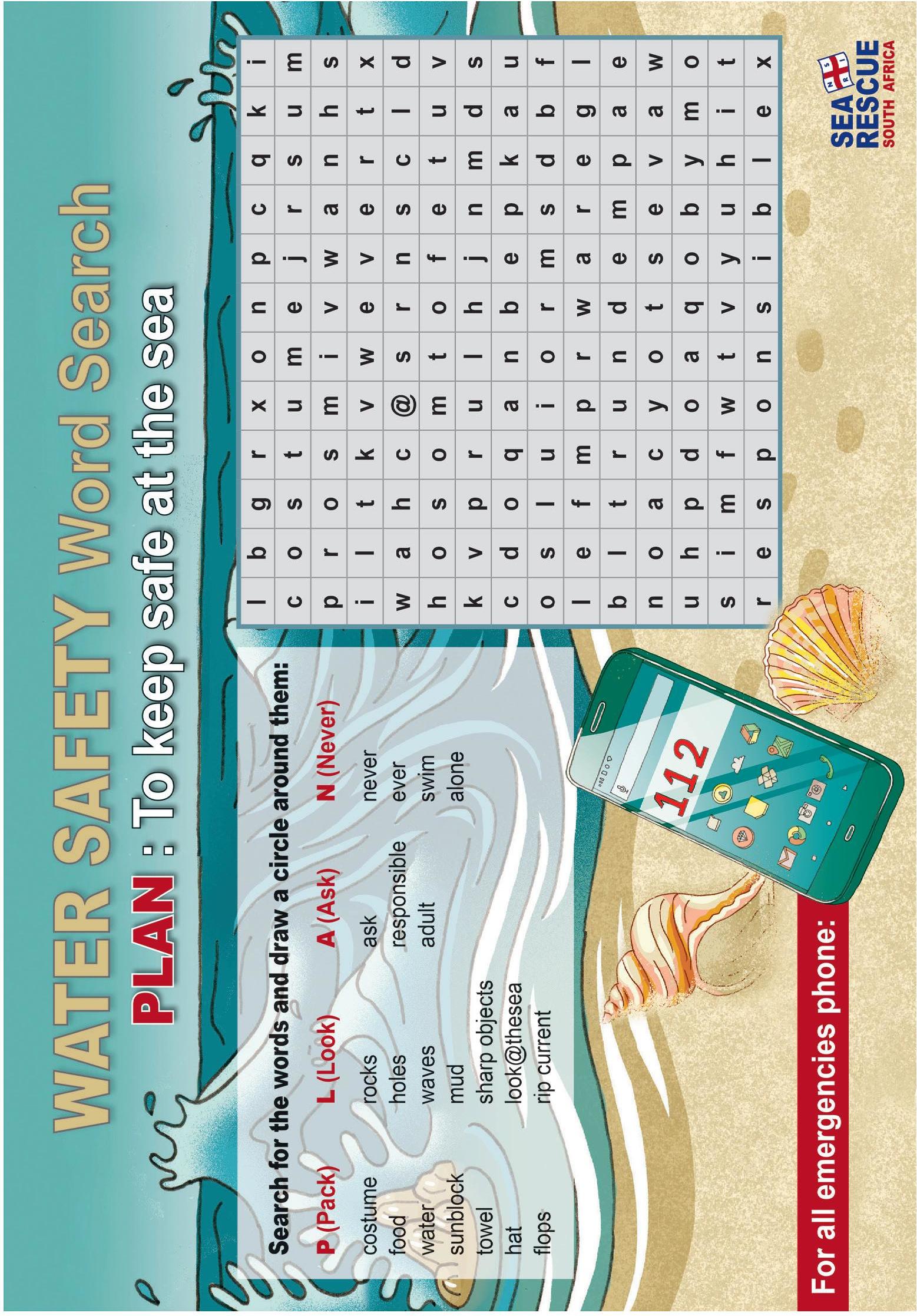
4 minute read
KIDS’ CLUB Our competition winner’s story, a fun word search and advice on how to help stranded animals
KIDS CLUB KIDS CLUB Our winning story Our winning story
Thank you, Ava,
for writing such a great story about water safety. The important message here is never to swim without adult supervision.

On one hot summer’s day, Peggy the penguin was sweating in the heat! She went outside into her garden and then climbed over a fence that led to the mini pool. Her little turtle friend was in her garden. His name is Nev. ‘No, no, no. The fence is there for a reason. It is there so you can’t get into the mini pool because it’s unsupervised!’ shouted Nev. ‘I’m going to tell your parents!’ Peggy didn’t listen and got into the mini pool. She got into big trouble. The next day, she went to the park without her parents knowing! Nev followed her to make sure she was safe. ‘This is dangerous,’ shouted Nev. ‘You mustn’t climb over the fence!’ said Nev, getting really angry. Peggy didn’t listen again, so Nev went to tell her parents and they came rushing to the pool. They were angry and took her home.
Peggy doesn’t know how to swim yet, so her parents taught her how to swim. And they told her never to get into a pool unsupervised! The end!
Ava Wright (9)
AT HOME

Don’t climb over fences to get to the swimming pool.

Even if you’re a strong swimmer, never swim alone.
Portable swimming pools (mini pools) pose as much risk to small children. Ensure these are covered when not in use.
Parents, install a taut swimming-pool cover over your swimming pool and keep it on when the pool is not in use. Pools must be fenced and remain locked, making them inaccessible to children.
Don’t leave water in buckets or tubs outside, or in the bath in the home.
SUMMER SAFETY GUIDE
Ava was right about the water-safety messages in our picture story. We’ve put together a guide for parents and children so we can all be safe, and still enjoy summer-time fun.
Call 112 in the event
Take an umbrella and of an enough water, and apply sunscreen if you’re Only swim emergency. Parents, going to the beach for where there are always accompany small children in or near the shallow surf. a couple of hours. lifeguards on duty and stay between the flags Don’t use pool inflatables at the beach: these are very light and can be AT THE blown out to sea easily and
Consider others and the environment, and BEACH quickly. don’t leave bottles or plastic on the beach.


What to do... What to do...
...if you find a PENGUIN in distress on a beach.
› Do not return the penguin to the sea › Keep dogs away and do not crowd the penguin › Do not feed or wet the penguin, or give it water › Call the number below and await instructions
...if you find a SEABIRD in distress on a beach.
› If possible, catch the bird using a towel › Be mindful of its beak; it may try and defend itself › Place in a large box with good ventilation › Call the number below and await instructions
...if you find a SEAL in distress on a beach.
› Do not throw water over it › Do not chase it back into the water › Keep dogs away from the seal › Do not approach or try to touch the seal › Call the relevant emergency number on the right
Contact SPCA: 021 700 4158/9 or 083 326 1604 (after hours); Bayworld Port Elizabeth: stranding hotline 071 724 2122; Addo National Park: South African National Parks 046 653 0601; Cannon Rocks: Verona Veltman 083 654 9976, Lana Cummings 083 267 5198; Port Alfred and surrounds: Willem Nel (Ndlambe Municipality) 082 388 4600
...if you find a TURTLE in distress on a beach.
› Do not return the turtle to the sea › Do not remove any barnacles from its shell › If it’s a large turtle, remain close and call the number on the right › It it’s a hatchling, place in a small dry box and call the number on the right
Contact TWO OCEANS AQUARIUM:
021 418 3823 or 083 326 1604 (after hours)
GENERAL NOTES:
Stranded marine animals are often tired, injured or weak. If you see or find one in the Southern Cape region, contact SAPREC on 071 643 2496 or SMART on 072 227 4715








